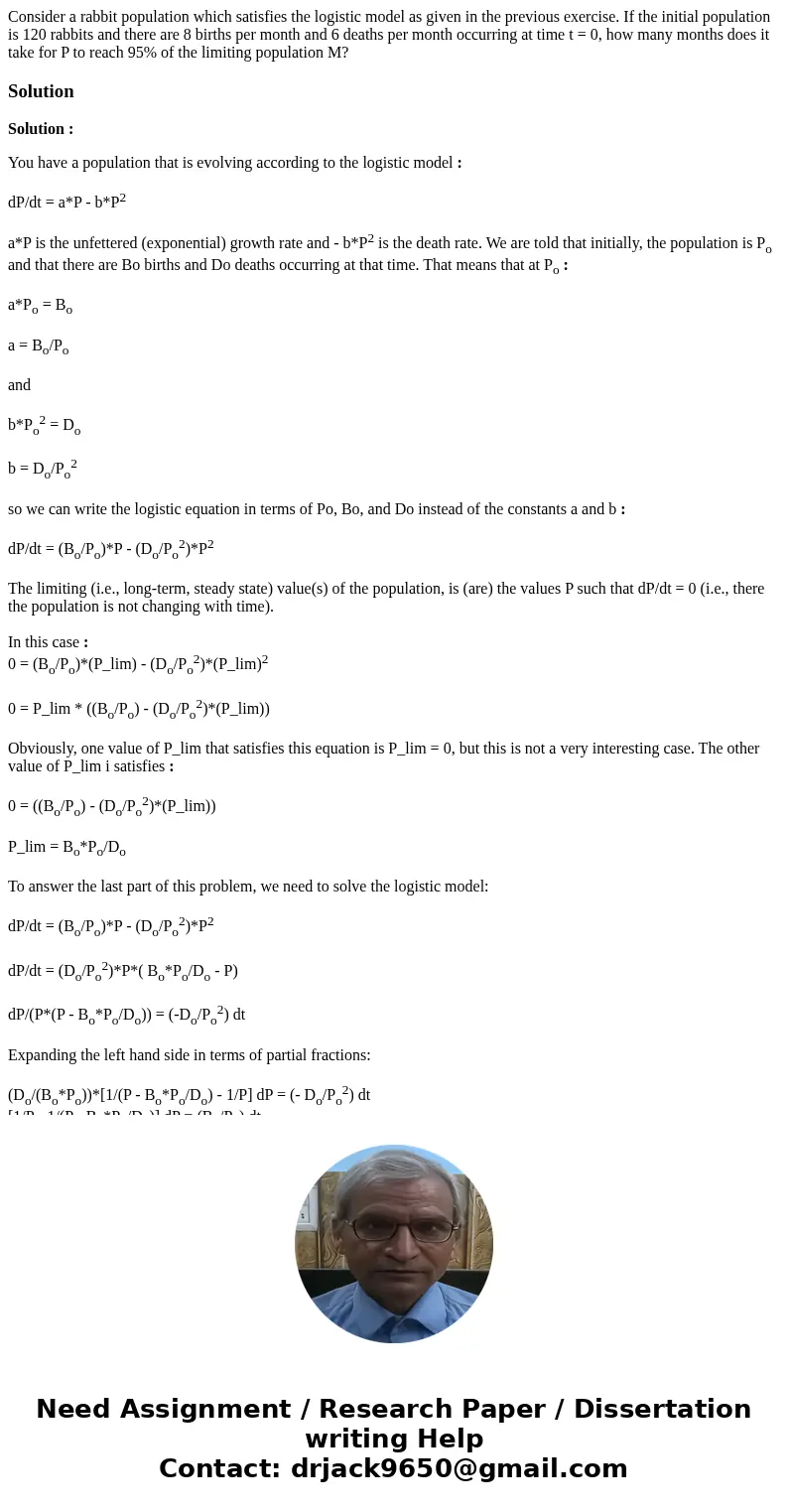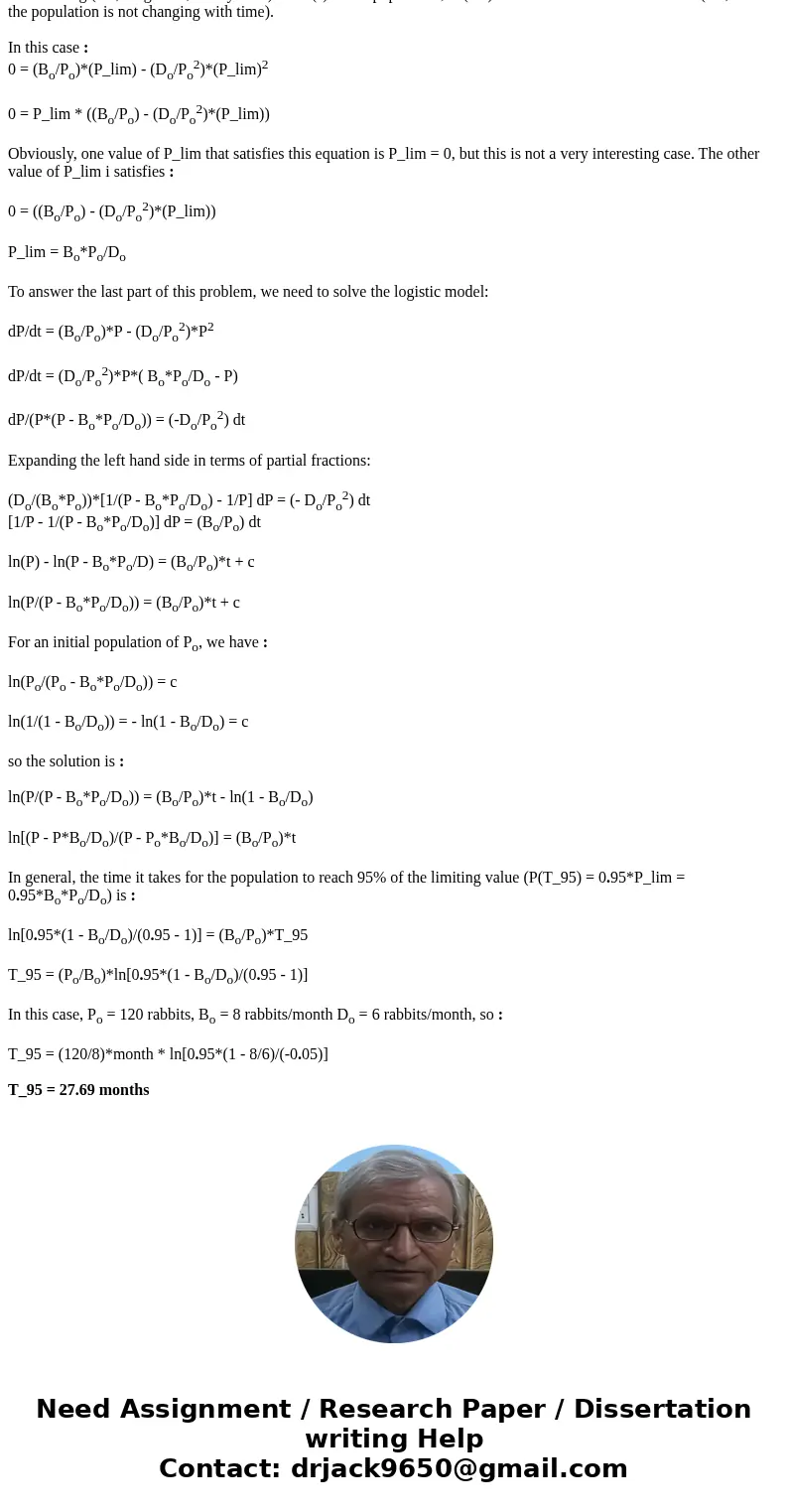Consider a rabbit population which satisfies the logistic mo
Solution
Solution :
You have a population that is evolving according to the logistic model :
dP/dt = a*P - b*P2
a*P is the unfettered (exponential) growth rate and - b*P2 is the death rate. We are told that initially, the population is Po and that there are Bo births and Do deaths occurring at that time. That means that at Po :
a*Po = Bo
a = Bo/Po
and
b*Po2 = Do
b = Do/Po2
so we can write the logistic equation in terms of Po, Bo, and Do instead of the constants a and b :
dP/dt = (Bo/Po)*P - (Do/Po2)*P2
The limiting (i.e., long-term, steady state) value(s) of the population, is (are) the values P such that dP/dt = 0 (i.e., there the population is not changing with time).
In this case :
0 = (Bo/Po)*(P_lim) - (Do/Po2)*(P_lim)2
0 = P_lim * ((Bo/Po) - (Do/Po2)*(P_lim))
Obviously, one value of P_lim that satisfies this equation is P_lim = 0, but this is not a very interesting case. The other value of P_lim i satisfies :
0 = ((Bo/Po) - (Do/Po2)*(P_lim))
P_lim = Bo*Po/Do
To answer the last part of this problem, we need to solve the logistic model:
dP/dt = (Bo/Po)*P - (Do/Po2)*P2
dP/dt = (Do/Po2)*P*( Bo*Po/Do - P)
dP/(P*(P - Bo*Po/Do)) = (-Do/Po2) dt
Expanding the left hand side in terms of partial fractions:
(Do/(Bo*Po))*[1/(P - Bo*Po/Do) - 1/P] dP = (- Do/Po2) dt
[1/P - 1/(P - Bo*Po/Do)] dP = (Bo/Po) dt
ln(P) - ln(P - Bo*Po/D) = (Bo/Po)*t + c
ln(P/(P - Bo*Po/Do)) = (Bo/Po)*t + c
For an initial population of Po, we have :
ln(Po/(Po - Bo*Po/Do)) = c
ln(1/(1 - Bo/Do)) = - ln(1 - Bo/Do) = c
so the solution is :
ln(P/(P - Bo*Po/Do)) = (Bo/Po)*t - ln(1 - Bo/Do)
ln[(P - P*Bo/Do)/(P - Po*Bo/Do)] = (Bo/Po)*t
In general, the time it takes for the population to reach 95% of the limiting value (P(T_95) = 0.95*P_lim = 0.95*Bo*Po/Do) is :
ln[0.95*(1 - Bo/Do)/(0.95 - 1)] = (Bo/Po)*T_95
T_95 = (Po/Bo)*ln[0.95*(1 - Bo/Do)/(0.95 - 1)]
In this case, Po = 120 rabbits, Bo = 8 rabbits/month Do = 6 rabbits/month, so :
T_95 = (120/8)*month * ln[0.95*(1 - 8/6)/(-0.05)]
T_95 = 27.69 months


 Homework Sourse
Homework Sourse